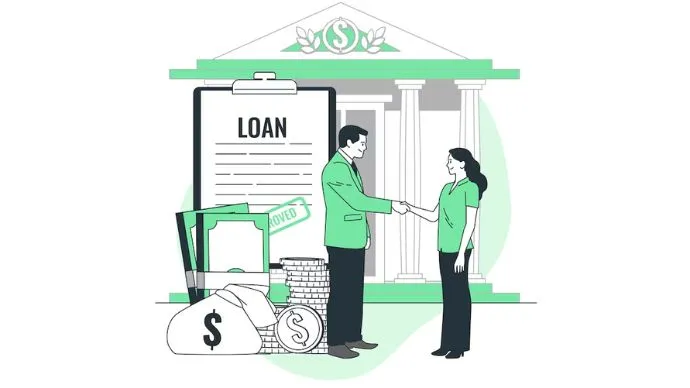
Table of Contents
What is a Retail Loan?
A consumer loan, commonly referred to as a retail loan, stands as a widely sought-after financial solution offered by authorized financial institutions, including commercial banks and credit unions. This type of financing is designed for individuals aspiring to acquire various assets such as real estate, electronics, vehicles, and other essential items. Eligibility for a retail loan like personal loan car loan etc.. generally hinges on the borrower’s possession of a favorable credit score and a robust track record of timely repayments.
Upon obtaining a retail loan, the borrower is expected to repay the principal amount along with interest, either on a monthly or annual basis, over a predetermined period. Retail loans are often pursued by individuals in need of prompt funds to facilitate a purchase, yet find themselves lacking the essential financial resources to cover the upfront costs.
What Are the Different Types of Retail Loans?
Personal Loan
A personal loan is a versatile financial solution that comes in handy when you need extra cash for immediate needs. It is an unsecured loan, eliminating the requirement for collateral. A personal loan serves versatile purposes, including home improvements, covering medical expenses, or financing travel. Banks and financial institutions provide personal loans with interest rates that are generally higher than secured loans like home or car loans. Additionally, these loans come with shorter repayment tenures, offering convenience for individuals seeking a faster debt repayment option.
Vehicle Loans
Auto loans offer financial support for acquiring various types of vehicles, be it a car loan, motorcycle, or any other mode of transportation. Generally, borrowers initiate the process with a down payment and proceed to settle the remaining balance through monthly installments that include interest. It’s crucial to note that interest rates for vehicle loans can differ, underscoring the importance of exploring different options to secure the most favorable deal.
Home Loans
Home loans, also referred to as housing loans, are crafted to assist individuals in realizing their homeownership dreams. Rather than waiting for years to accumulate the entire sum, these loans enable borrowers to make payments for the property through installments over an extended period. This proves to be a convenient solution for those aspiring to enter the real estate market but are without a substantial lump sum. Housing loans are characterized by flexible repayment plans and reasonable interest rates.
Education Loans
Education loans provide financial support for students pursuing higher education, whether in India or abroad. These loans may be either secured or unsecured, often featuring lower interest rates in comparison to unsecured alternatives such as personal loans or credit card loans. Education loans provide extended repayment periods, affording students sufficient time to settle the loan following the completion of their education.
Credit Card Loans
Credit card loans enable cardholders to obtain a loan against their credit limit for unforeseen financial needs. Banks impose interest on the loan amount, the terms of which may vary. Repayment can be made through Equated Monthly Installments (EMIs) over a designated period. It’s important to note that interest rates on credit card loans can be higher compared to other types of loans.
What are the Advantages of a Retail Loan?
Retail loans present numerous benefits, rendering them an appealing choice for individuals in need of financial support:
- Attain Financial Objectives without Upfront Payments: Retail loans empower you to accomplish financial goals without the need for immediate full payments. The option to repay the loan through installments facilitates better financial management.
- Flexibility and Versatility: These loans offer flexibility for diverse purposes, whether it’s acquiring a home, a vehicle, or funding higher education. This versatility makes retail loans a highly adaptable solution to meet various financial needs.
- Easy to Obtain: Retail loans are generally easy to obtain, with simplified application processes. They often have lower interest rates compared to other forms of borrowing.
- Enhance Your Credit Rating: Making prompt repayments on a retail loan can contribute to boosting your credit score, thereby increasing the likelihood of securing future loans on more favorable terms.
Risks and Responsibilities Associated with Obtaining a Retail Loan.
While retail loans come with advantages, it’s crucial to acknowledge the accompanying risks and obligations:
- Higher Interest Rates and Extra Charges: Over the course of time, increased interest rates and additional fees can escalate the overall cost of the loan. Carefully review the loan’s terms and assess your ability to repay.
- Potential Financial Strain: Failing to make timely repayments can lead to financial strain and negatively impact your credit score. Ensure you can comfortably repay the loan before applying.
What are the Qualifications Needed for a Retail Loan?
The eligibility criteria for a retail loan differ among lenders but generally encompass common factors:
- Age: Usually, borrowers need to be at least 18 years old and residents of India.
- Income: Lenders might stipulate a minimum income threshold, which can vary depending on the loan amount and credit history.
- Credit Score: Typically, a favorable credit score is necessary, indicating responsible financial behavior.
- Employment: Borrowers should be employed, self-employed, or have a steady source of income.
- Additional Considerations: Elements such as the debt-to-income ratio, existing financial commitments, and tenure at your current residence or job can impact eligibility.
Understanding what each lender requires is important to avoid possible rejections or delays in the loan application process.
What Documents Do You Need for a Retail Loan?
When applying for a retail loan, lenders usually request a range of documents, including
- Proof of Identity: Provide a government-issued photo ID, such as a passport, driver’s license, or PAN card.
- Proof of Residence: Submit a utility bill, bank statement, or an official document displaying your current address.
- Proof of Income: Furnish salary slips, bank statements, tax returns, or documents verifying your earnings.
- Collateral Documentation: For secured loans, include documentation related to the collateral, like a title or property ownership certificate.
Specific document requirements may vary by lender and loan type, so it’s advisable to confirm the necessary documents with the lender before applying.


